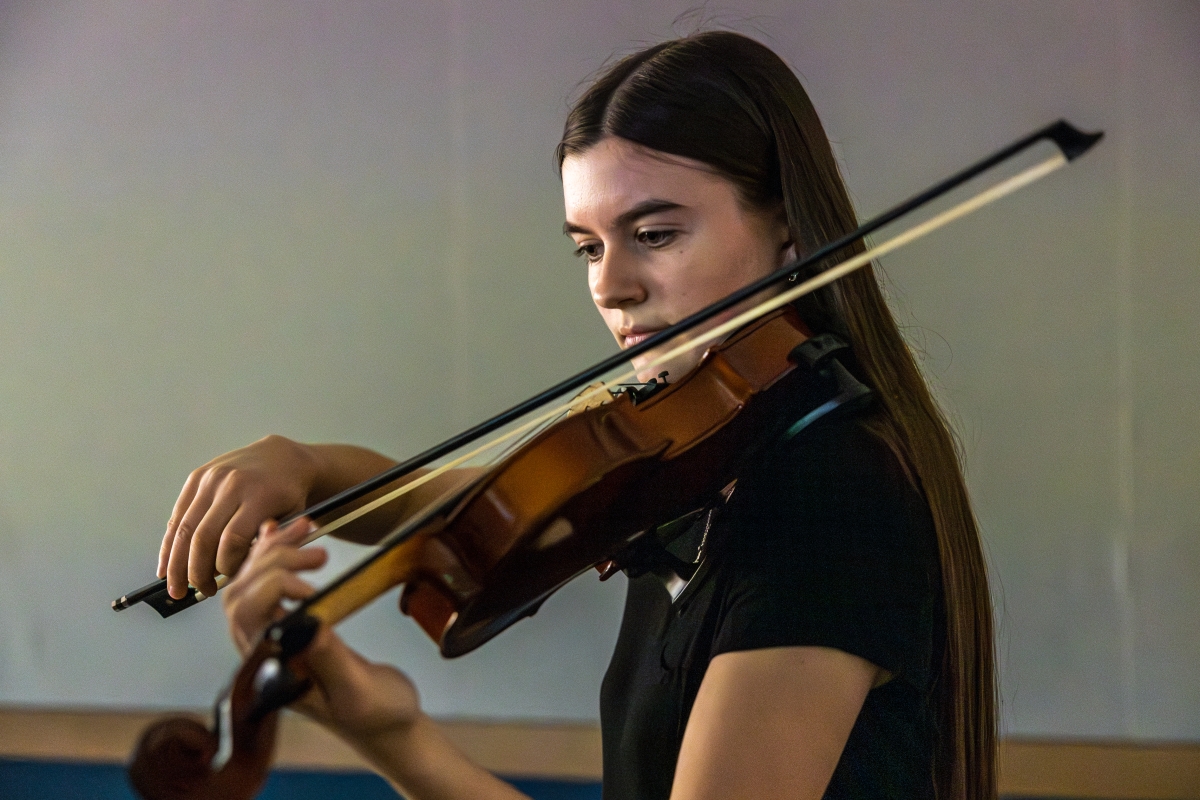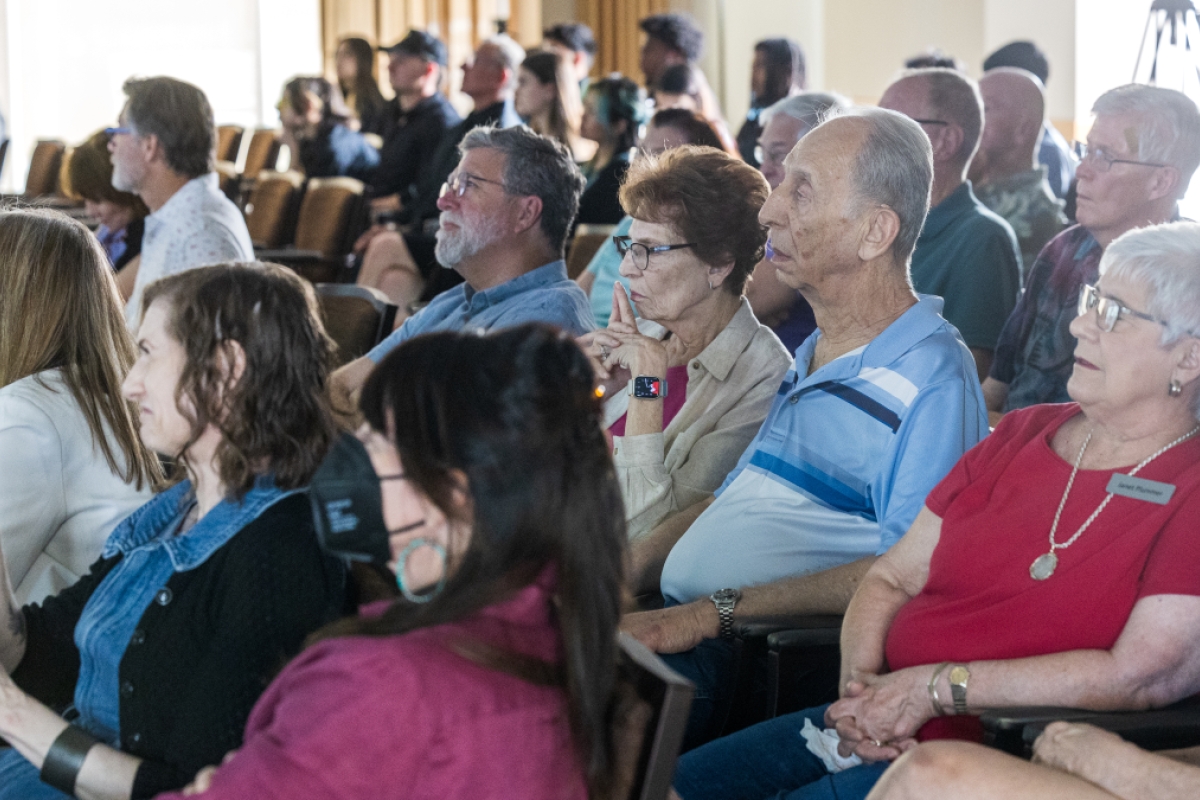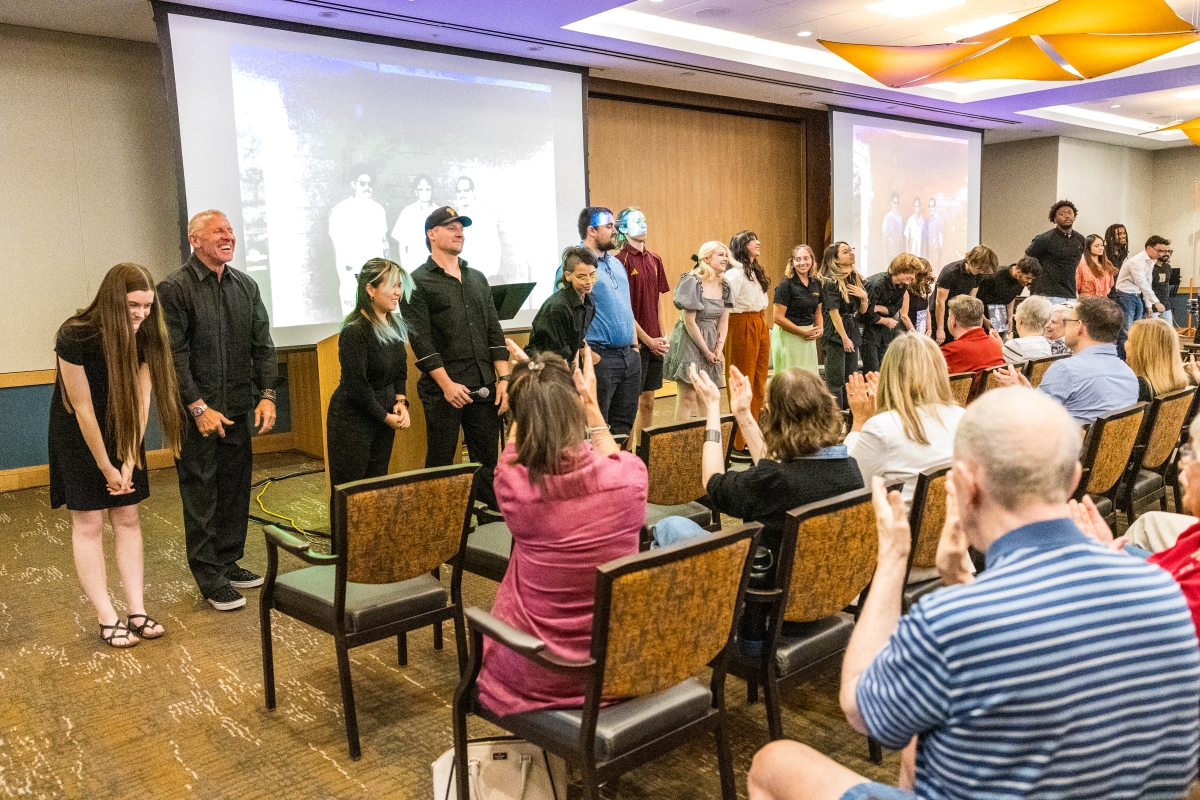Students host gun culture storytelling event with an intergenerational audience
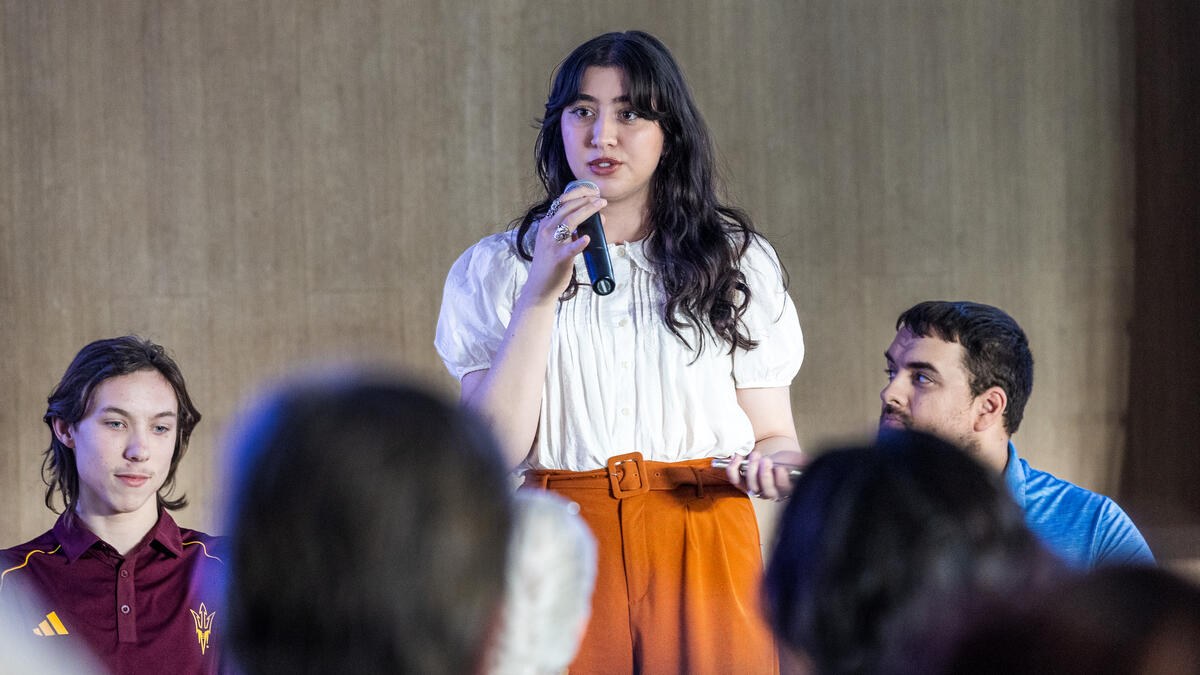
Hadia Aslamy, an ASU student pursuing a graduate degree in English literature and a student in the "Guns, Art-making, and Truth" Humanities Lab course, shares her research outcome to an intergenerational audience. Photo by Charlie Leight/ASU News
According to Bobbie Reed — a resident of Arizona State University's senior living retirement community center, Mirabella — guns were much less prevalent in society when she was growing up.
“I don’t think that many people had guns. I don’t think that it was a great public issue," she said at a recent event titled "Guns, Art-making, and Truth: Public Dialogues on Gun Culture (Inspired by Fourth RespondersGuns, Art-making, and Truth develops (metaphoric) "fourth responders" to gun violence. First responders are law enforcement and emergency personnel; second responders are the supporting institutions (police, fire, etc.); and third responders provide people in the affected communities with social support networks that enable them to rebuild and restructure their lives according to their needs and interests. In this project, students lived in the role of fourth responders, making meaning for and with the community — expressing, through art, the impact of gun violence on the community in ways that open dialogue and support healing for those who are harmed. )," hosted by students and professors of the Guns, Art-making, and Truth (GAMT) course offered at ASU this spring.
The course is the second in the Humanities Lab's three-part series on gun culture; the final course, U.S. Gun Culture and Gun Impacts, is being offered in fall of 2024.
"The people that I knew (who owned guns) were hunters, and they had rifles because they hunted deer. The only other place that I remember seeing guns were the cowboys in cowboy pictures on TV,” Reed added. “(Now) it seems more accepted that you are going to see guns everywhere you go.”
The event Reed attended, held at Mirabella ASU, was part of a partnership with the National Humanities Center's inaugural U.S.-based Being Human Festival.
The GAMT course’s professors, Daniel Bernard Roumain, from the School of Music, Dance and Theatre, and Laura Turchi, from the Arizona Center for Medieval and Renaissance Studies, were awarded a competitive grant to participate in the festival, which took place in eight communities across the U.S. between April 15–26.
Hadia Aslamy, a grad student pursuing a master's degree in English literature, said of her recent experience in the GAMT course, “It is really important to talk about something that is usually brushed off as 'too political,' as it impacts so many Americans each and every day."
For students like Aslamy and her classmate, Fiona SauveThrough the Beyond the Lab program, Aslamy and Sauve continue to work under the mentorship of professors Sarah Lindstrom Johnson (also recently featured for another student outcome from this lab funded by the Matthew & Camila McConaughey's Green Lights Grants Initiative) and President's Professor Jim Blasingame in an effort to raise awareness around the importance of creating a safe environment in schools. They will be presenting their research outcome to 400-plus educators at the Trauma Sensitive Schools Symposium on June 4. , a narrative studies graduate student —both of whom also participated in the first course of the series (Narratives of School Shootings) and the Humanities Lab’s Beyond the Lab program — their experience with gun culture is very different.
Aslamy and her GAMT team are self-described “(video) gamers” who leveraged the course as a way to explore the prevalence of gun culture in multiplayer, first-person shooter video games.
“Each of us play video games that have shooting elements, and while our games all varied in terms of content and violence, they all had similar game functions: Destroy the opponents in the game in order to achieve an objective,” Aslamy says.
“The point of our research,” she says, “was to look at the benefits of video games — (for example) many learn teamwork skills, improve their cognitive performance, and even learn many executive functions from video games — while recognizing the fears associated with these types of games from others, especially the older generations.”
Sauve, a writer and violinist, and her team took a creative and performative approach to convey their course research to the intergenerational audience.
“Our team ... presented two poems based on interviews we conducted with real people who committed gun violence. The first poem, 'The American Way,' was from the perspective of a man who assaulted someone with a deadly weapon. The second poem, 'Triggers from the Past,' was from the perspective of a man who was prosecuted for first-degree murder," she said.
“Through self-expression, we can share ideas and experiences that can lead to safer, more understanding communities."
An arts-based approach was a central element of the course; students broke out into four collaborative groups to determine how best to creatively present their research outcomes.
Leading up to the event, “Students talked (and wrote) about how it felt to experience art created in response to gun violence — music, theater, dance, visual arts and more. As instructors, our shared goal was to make a safe space for diverse opinions and a comfortable space for performing one's understanding — even if you never thought of yourself as an artist,” Turchi said.
After the event, Roumain said, “I think the audience received information and imagination from all the contributors in equal parts. The day was a collision between data and dreams, and how all of us can embody and imagine a shared, radical morality built on the promise of learning from, listening to and participating in a broad, equitable world of ideas and boundless empathy.”
Reed appreciates that ASU students “are encouraged to take on projects like this and share them with people who are not students in their class and ... with people of another generation to open dialogue.” She sees this as “a movement within ASU” that benefits the greater good.
More Arts, humanities and education
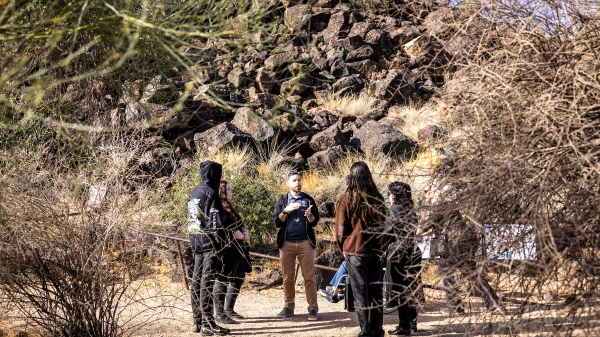
Petroglyph preserve celebrates 30th anniversary with ancient, modern tales
The Deer Valley Petroglyph Preserve provides a beautiful walk through a pristine desert where chuckwalla lizards are as plentiful as the cacti that comes in many shapes and sizes.It’s also a step…
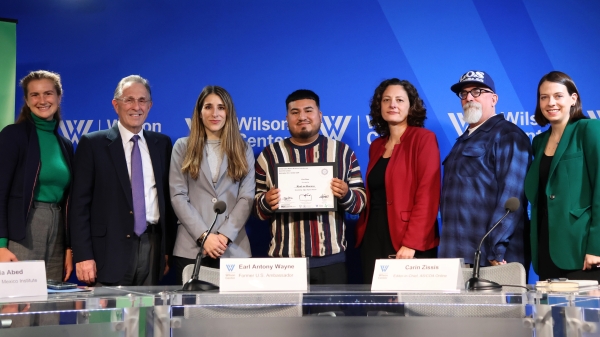
Kaleidoscope short film contest inspires powerful binational filmmaking in its second year
“We come to this country not to steal anybody’s jobs but to take advantage of the opportunities that the rest ignore. We’ve been taking care of the American soil for many years. But our hands will…

ASU's Neal Lester reflects on life, death of poet Nikki Giovanni
When Neal Lester heard on Monday that poet and activist Nikki Giovanni had died, the news hit hard.Lester, the founding director of Arizona State University’s Project Humanities and a Foundation…
